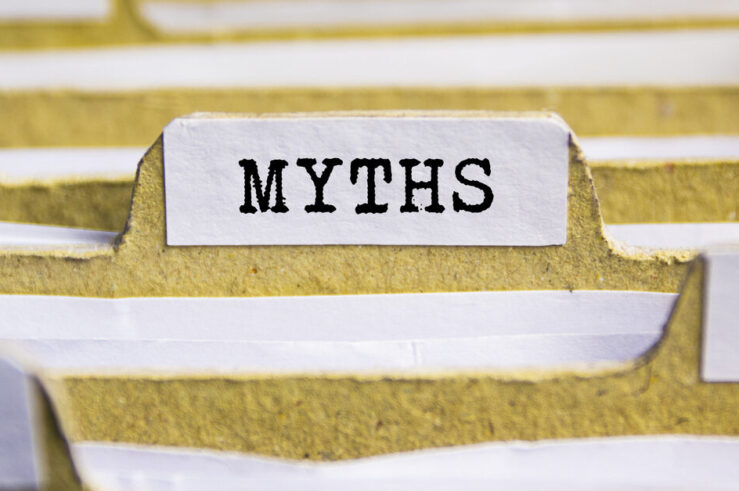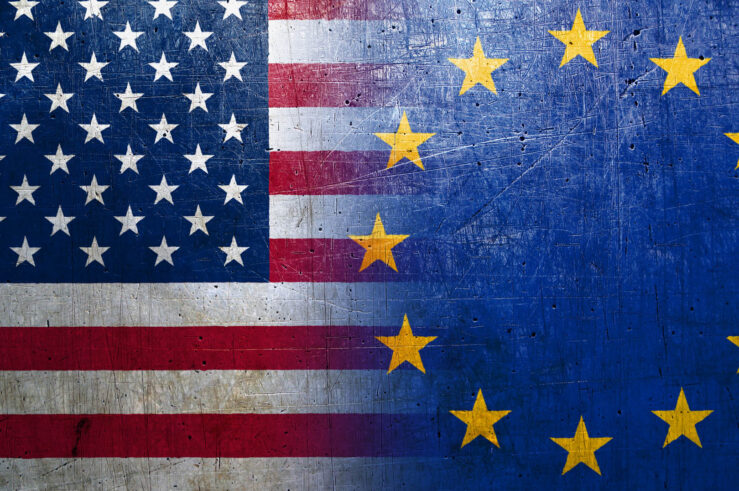Showing results for: “premium natural and organic”
10 Things the American Innovation and Choice Online Act Gets Wrong
The Senate Judiciary Committee is set to debate S. 2992, the American Innovation and Choice Online Act (or AICOA) during a markup session Thursday. If passed into law, the bill would force online platforms to treat rivals’ services as they would their own, while ensuring their platforms interoperate seamlessly. The bill marks the culmination of ... 10 Things the American Innovation and Choice Online Act Gets Wrong
Intermediaries: The Hero We Need?
In policy discussions about the digital economy, a background assumption that frequently underlies the discourse is that intermediaries and centralization always and only serve as a cost to consumers, and to society more generally. Thus, one commonly sees arguments that consumers would be better off if they could freely combine products from different trading partners. ... Intermediaries: The Hero We Need?
Political Philosophy, Competition, and Competition Law: The Road to and from Neoliberalism, Part 1
The interplay among political philosophy, competition, and competition law remains, with some notable exceptions, understudied in the literature. Indeed, while examinations of the intersection between economics and competition law have taught us much, relatively little has been said about the value frameworks within which different visions of competition and competition law operate. As Ronald Coase ... Political Philosophy, Competition, and Competition Law: The Road to and from Neoliberalism, Part 1
Case closed: Google wins (for now)
The European Commission and its supporters were quick to claim victory following last week’s long-awaited General Court of the European Union ruling in the Google Shopping case. It’s hard to fault them. The judgment is ostensibly an unmitigated win for the Commission, with the court upholding nearly every aspect of its decision. However, the broader ... Case closed: Google wins (for now)
Online Display Advertising: What’s the relevant market?
Digital advertising is the economic backbone of the Internet. It allows websites and apps to monetize their userbase without having to charge them fees, while the emergence of targeted ads allows this to be accomplished affordably and with less wasted time wasted. This advertising is facilitated by intermediaries using the “adtech stack,” through which advertisers ... Online Display Advertising: What’s the relevant market?
Technology Mergers and the Market for Corporate Control
In recent years, a growing chorus of voices has argued that existing merger rules fail to apprehend competitively significant mergers, either because they fall below existing merger-filing thresholds or because they affect innovation in ways that are purportedly ignored. These fears are particularly acute in the pharmaceutical and tech industries, where several high-profile academic articles ... Technology Mergers and the Market for Corporate Control
How US and EU Competition Law Differ
U.S. and European competition laws diverge in numerous ways that have important real-world effects. Understanding these differences is vital, particularly as lawmakers in the United States, and the rest of the world, consider adopting a more “European” approach to competition. In broad terms, the European approach is more centralized and political. The European Commission’s Directorate ... How US and EU Competition Law Differ
For Scotch Whisky, Age Is Just A Number
For a potential entrepreneur, just how much time it will take to compete, and the barrier to entry that time represents, will vary greatly depending on the market he or she wishes to enter. A would-be competitor to the likes of Subway, for example, might not find the time needed to open a sandwich shop ... For Scotch Whisky, Age Is Just A Number
Going Back to Antitrust Basics
Advocates of legislative action to “reform” antitrust law have already pointed to the U.S. District Court for the District of Columbia’s dismissal of the state attorneys general’s case and the “conditional” dismissal of the Federal Trade Commission’s case against Facebook as evidence that federal antitrust case law is lax and demands correction. In fact, the ... Going Back to Antitrust Basics
The Virtues and Pitfalls of Economic Models
Interrogations concerning the role that economic theory should play in policy decisions are nothing new. Milton Friedman famously drew a distinction between “positive” and “normative” economics, notably arguing that theoretical models were valuable, despite their unrealistic assumptions. Kenneth Arrow and Gerard Debreu’s highly theoretical work on General Equilibrium Theory is widely acknowledged as one of ... The Virtues and Pitfalls of Economic Models
The Supreme Court Misses the Big Consumer Welfare Picture in NCAA v. Alston
In its June 21 opinion in NCAA v. Alston, a unanimous U.S. Supreme Court affirmed the 9th U.S. Circuit Court of Appeals and thereby upheld a district court injunction finding unlawful certain National Collegiate Athletic Association (NCAA) rules limiting the education-related benefits schools may make available to student athletes. The decision will come as no ... The Supreme Court Misses the Big Consumer Welfare Picture in NCAA v. Alston
The FTC Did Not ‘Fumble the Future’ in Its Google Search Investigation
Politico has released a cache of confidential Federal Trade Commission (FTC) documents in connection with a series of articles on the commission’s antitrust probe into Google Search a decade ago. The headline of the first piece in the series argues the FTC “fumbled the future” by failing to follow through on staff recommendations to pursue ... The FTC Did Not ‘Fumble the Future’ in Its Google Search Investigation













